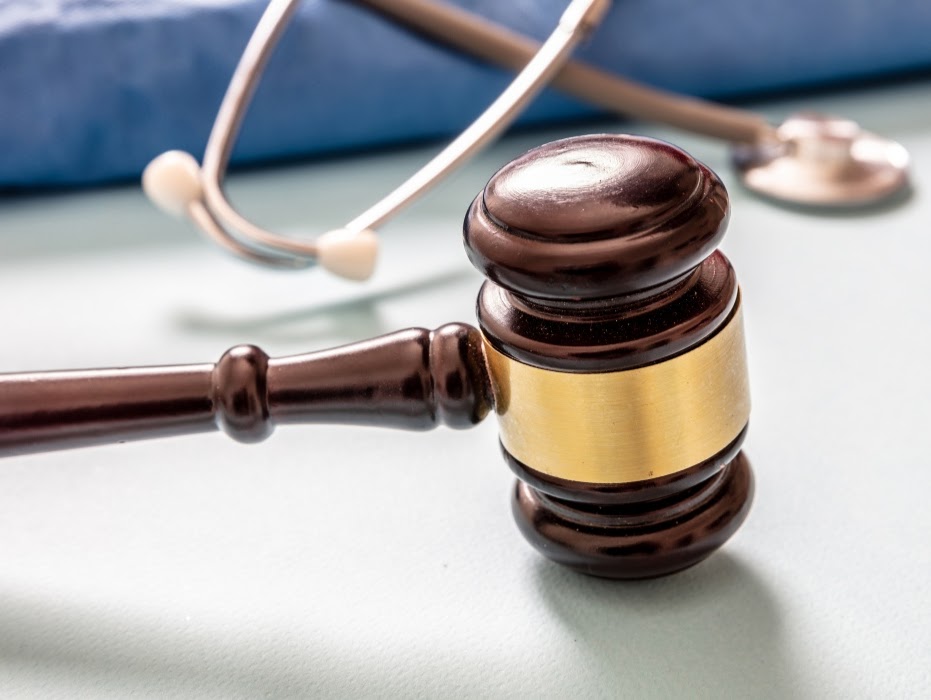

Medical malpractice refers to a situation where a healthcare professional, through a negligent act or omission, causes injury or harm to a patient. This could involve errors in diagnosis, treatment, aftercare, or health management. The standard of care is a critical factor in determining whether an action qualifies as malpractice; it represents the level of competence expected from practitioners within the same field under similar circumstances. When these standards are not met, patients may suffer unnecessarily due to avoidable mistakes.
Malpractice can manifest in numerous ways. Diagnostic errors are among the most frequent, where misdiagnosis or delayed diagnosis results in incorrect treatment plans that may worsen a patient's condition. Surgical errors also contribute significantly; this includes wrong-site surgeries or leaving medical instruments inside patients' bodies post-operation. Medication mistakes involving incorrect dosages or prescriptions represent another common form of malpractice. Each type highlights the potential for harm when medical professionals fail to adhere strictly to protocols.
The consequences of medical malpractice on patients can be devastating and long-lasting. Physically, they may endure additional surgeries or treatments to correct the initial error, which can lead to prolonged recovery times and increased vulnerability to infections and other complications. Mentally and emotionally, these experiences often result in stress, anxiety, and loss of trust in healthcare providers. Financially, patients face mounting medical bills coupled with potential lost income if they are unable to work during their recovery period.
Victims of medical malpractice have recourse through legal channels; however, pursuing such claims can be complex and demanding. A successful lawsuit requires proof that negligence directly caused harm beyond what might have occurred under competent care—a challenging task without expert testimonies from other healthcare professionals. Nevertheless, legal actions serve as an essential mechanism for patients seeking compensation for damages incurred due to substandard care.
Preventing medical malpractice requires concerted efforts focused on enhancing patient safety measures across healthcare systems. This involves continuous education for clinicians on new practices and technologies alongside rigorous adherence to established protocols designed to minimize risks during patient interactions. Encouraging open communication between patients and providers also plays a crucial role; informed patients who actively participate in their health decisions help create more transparent relationships that can preempt potential errors before they occur.

When facing the daunting challenge of a medical malpractice case, one might feel overwhelmed by the complexity of legal proceedings and the intricacies of medical knowledge required to navigate such a situation.. This is where the role of a medical malpractice lawyer becomes crucial.
Posted by on 2024-10-08

The realm of medical malpractice law is a complex and often misunderstood area within the legal landscape.. At its core, it involves cases where a patient believes they have been harmed due to the negligence or incompetence of a healthcare professional.
Posted by on 2024-10-08

Hiring a medical malpractice lawyer is a decision that requires careful consideration and understanding of the process.. Medical malpractice cases are often complex, involving intricate details of both legal and medical issues.
Posted by on 2024-10-08

Title: Understanding Compensation and Settlements in Medical Malpractice Lawsuits Medical malpractice is a complex area of law that deals with cases where healthcare professionals are alleged to have provided substandard care, resulting in harm to patients.. When such instances occur, affected individuals often seek compensation through lawsuits to cover damages ranging from medical expenses to pain and suffering.
Posted by on 2024-10-08
Medical malpractice occurs when a healthcare professional deviates from the accepted standards of care, causing harm to a patient. Such incidents can lead to significant physical, emotional, and financial consequences for those affected. Patients who suffer due to negligence often seek legal recourse to claim damages and compensation. The process of understanding these damages and pursuing compensation is critical for victims looking to restore their quality of life.
In medical malpractice cases, damages are typically categorized into several types: economic, non-economic, and sometimes punitive. Economic damages refer to tangible losses such as medical expenses and lost wages resulting from the injury or prolonged recovery period. Non-economic damages cover intangible losses like pain and suffering, loss of enjoyment of life, or emotional distress caused by the malpractice incident. In rare instances where a healthcare provider's conduct is deemed particularly egregious or reckless, punitive damages may be awarded as a form of punishment intended to deter similar behavior in the future.


Determining appropriate compensation in medical malpractice cases involves complex calculations that take multiple factors into account. Economic damages are generally easier to quantify because they rely on concrete figures stemming from bills and income statements. However, assigning monetary value to non-economic damages is inherently more subjective as it requires evaluating the extent of pain endured or impact on one's lifestyle. Legal professionals often employ expert witnesses such as medical specialists or economists to provide testimony supporting claims for both economic and non-economic losses.
Liability insurance companies play a crucial role in medical malpractice claims as they represent healthcare providers involved in litigation. Their primary aim is often minimizing payout amounts by scrutinizing claims closely or negotiating settlements out-of-court rather than facing potentially higher jury awards at trial. Consequently, patients seeking fair compensation must be prepared for rigorous negotiations with insurers who have extensive resources at their disposal.
The first step in proving negligence is showing that the medical professional owed a duty of care to the patient. This is typically straightforward if there was an established doctor-patient relationship. The healthcare provider is expected to deliver care consistent with what other similarly trained professionals would provide under comparable conditions.
Once duty is established, it must be shown that the healthcare provider breached this duty by failing to adhere to accepted medical standards. Evidence often includes expert testimony from other medical professionals who can attest that the actions taken by the defendant were not aligned with standard practices or were otherwise subpar.


Expert witnesses in medical malpractice cases must possess specialized knowledge, training, or experience relevant to the case at hand. They are typically professionals with substantial credentials and expertise within specific areas of medicine. The selection process for these experts is rigorous because their testimony can significantly influence the outcome of a case. Courts often rely on these experts to provide an independent assessment, focusing on factual evidence rather than personal opinion.
One primary duty of an expert witness is to establish what constitutes appropriate care under similar circumstances, known as the "standard of care." This involves evaluating whether the healthcare provider acted in accordance with what other competent providers would do under similar conditions. Expert witnesses draw upon their extensive knowledge and experience to articulate this standard clearly for judges and juries who may not be familiar with medical intricacies.
A medical malpractice lawyer specializes in representing patients who have been harmed due to the negligence or errors of healthcare professionals. They help clients seek compensation for damages such as medical bills, lost wages, and pain and suffering.
To have a valid case, you must prove that there was a breach of the standard of care by a healthcare provider, resulting in harm or injury. A medical malpractice lawyer can evaluate your situation and help determine if these legal criteria are met.
Bring all relevant documents, including your medical records, any correspondence with healthcare providers or insurance companies, a timeline of events, and notes on how the incident has affected your life.
Many medical malpractice lawyers work on a contingency fee basis, meaning they only get paid if you win your case. Typically, their fee is a percentage of the settlement or award. Discuss specific terms during your initial consultation.
The duration varies based on factors like case complexity and court schedules. It could take anywhere from several months to years to resolve through settlement or trial. Your attorney can provide an estimated timeline based on their experience.